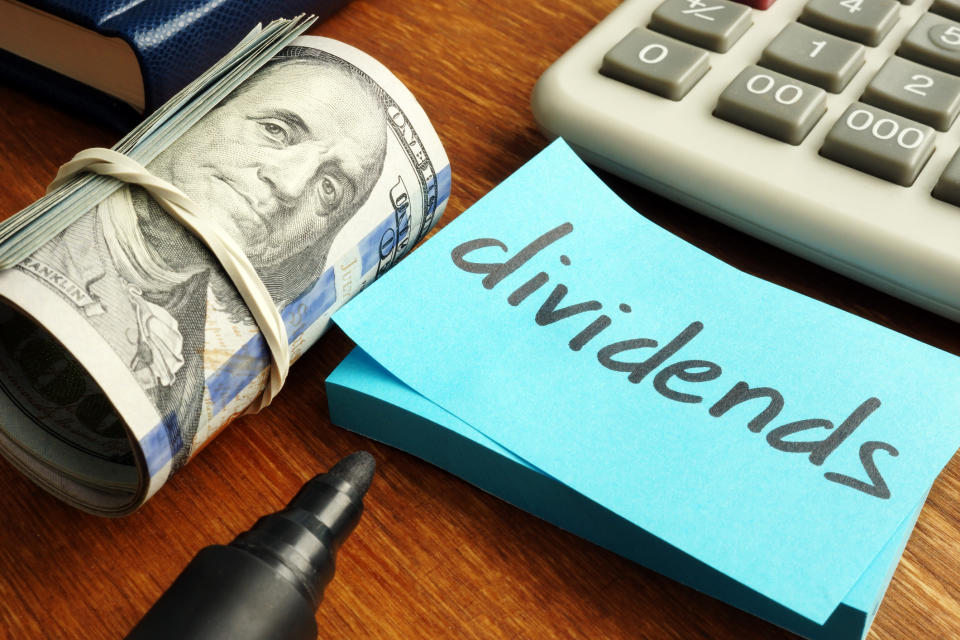2 Great Income Stocks That Could Double Their Dividends
There are plenty of great stocks that offer high yields, but it tends to be the case that their payouts rise at relatively slow rates. Investors will sometimes be better served by choosing companies that are poised to deliver fast payout growth, because they often have greater earnings-growth potential -- and big dividends aren't baked into their stock prices yet.
But what if you could find a stock that offered a happy medium? Some companies pay dividends with impressive yields, but also have the potential to deliver substantial payout hikes and market-beating stock price growth. Such stocks may be discounted in the market due to risks to their business or industry. Hanesbrands (NYSE: HBI) and Lowe's (NYSE: LOW) are stocks in that mold, and each could double its dividend over a five-year span.

Image source: Getty Images.
Hanesbrands
Looking at Hanesbrands' dividend trajectory over the last couple of years, you would not immediately single it out as a company with any likelihood of quickly doubling its payout. Its dividend has been flat since 2017, and that sort of stagnation would typically disqualify it from consideration by dividend-growth focused investors. However, zoom out a little further, and you'll see that the company actually did double its payout over the last five years -- and it has tripled its payout since 2013.
However, instead of boosting its dividend lately, the company has been focused on getting its debt-to-EBITDA ratio down to a target range of 2 to 3. It looks like it should achieve that this year or next.
The cost of covering the company's dividend is roughly 40% of trailing earnings, or 45% of trailing free cash flow. These reasonable payout ratios give Hanesbrands plenty of room to resume raising its dividend after it meets its debt-reduction goal -- even if the company were to pursue further cash-flow boosting acquisitions of reasonable size.
Management also has an encouraging outlook as regards FCF growth over the next five years. The company is expected to hit $900 million in operating cash flow in 2020 (or $1 billion if it goes through with potential acquisitions), up from $504 million in 2018.
Its Champion apparel brand is booming -- sales are expected to grow 32% in 2019, excluding the C9 brand, which was dropped by Target. That's also helping the company boost direct-to-consumer sales, which should continue be a positive margin catalyst. Hanesbrands' socks and underwear segment might not be a rapid growth driver, and the business does face long-term threats from major retailers' private-label brands. However, it's also true that Hanesbrands has the advantage of being an established and reasonably well-regarded name in the socks and underwear business, which is the kind of low-growth, brand-and-execution-focused market that has historically been unwelcoming to newcomers.
Hanesbrands' dividend is currently yielding an attractive 3.6%, and the stock trades at a reasonable 9.5 times expected earnings.
Lowe's
Lowe's has grown its dividend by 139% over the last five years, and by more than 500% over the last decade. While many investors and analysts will assert that rival Home Depot is the better business and stock, Lowe's still operates in what is effectively a duopoly of big-box home-improvement chains. That gives the company a defensible position, and provides it with opportunities for growth as it reorients to become a more efficient operation.
What's more, the home-improvement retail space looks relatively resilient compared to other businesses with a heavy brick-and-mortar footprint. Many of the products that Lowe's sells are the kind of things that customers still prefer to view in person before buying, and the shipping costs for its heavy offerings present a significant logistical barrier to widespread e-commerce disruption of the business. The company is also buying back its stock, with plans to repurchase $10 billion in shares this year. This should raise its EPS, and increase its ability to boost its dividend over the long term.
The stock currently sports a 2.15% dividend yield that is comfortably above the S&P 500 index's average of 1.85%, and it also has reasonable payout ratios (47% of trailing FCF and 42% of adjusted earnings) that leave room for further growth, so long as the company continues to improve cash flow and earnings. Shares look non-prohibitively priced, trading at roughly 18.5 times forward earnings. The company expects earnings to grow roughly 20% this year, and while the home renovation market is prone to cyclical ups and downs, the stock looks worthwhile for long-term investors when you factor in its appealing dividend profile.
Lowe's also has one of the best dividend growth track records of any company on the market, having increased its payout for a whopping 56 years straight. With an overall returned-income profile that looks pretty attractive, investors can feel confident that the company will keep the streak alive.
More From The Motley Fool
Keith Noonan owns shares of Hanesbrands. The Motley Fool recommends Home Depot and Lowe's. The Motley Fool has a disclosure policy.

 Yahoo Finance
Yahoo Finance 